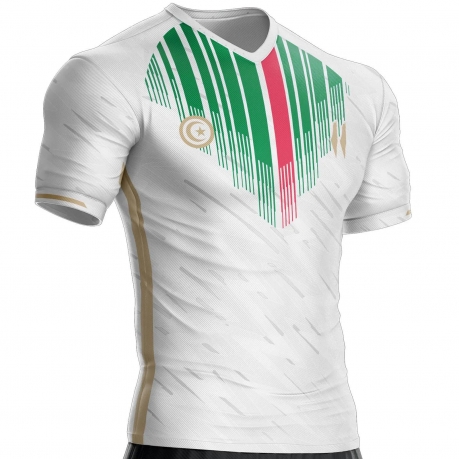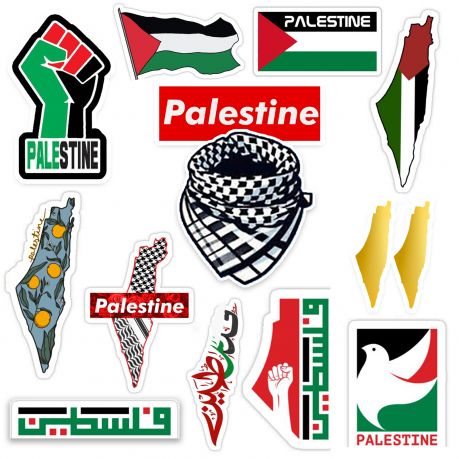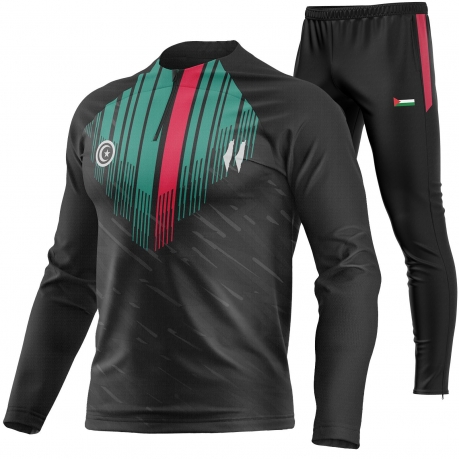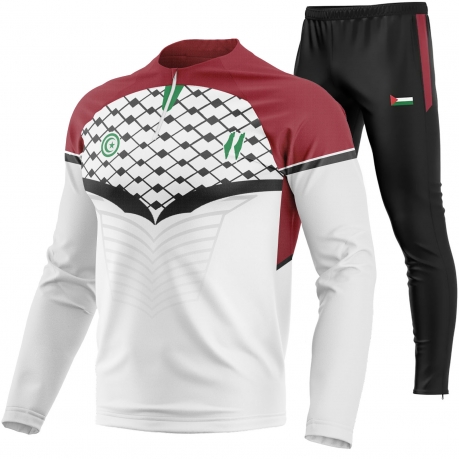The history of Palestinian football: A sport in the face of conflict

The history of Palestinian football: A sport in the face of conflict
November 15, 2018, Ramallah. The Faisal Al-Husseini stadium is in turmoil. The Palestinian national team has just achieved the feat of qualifying for the 2019 Asian Cup of Nations. Thousands of supporters invade the field, Palestinian flags in hand, to celebrate this historic victory. In this moment of intense joy, the divisions and difficulties of everyday life seem to fade away. Palestinian football expresses, at this precise moment, its strength and its capacity to bring together a people scarred by the conflict.
But the journey of Palestinian football is not a long, quiet river. Born in a complex geopolitical context, he had to face many obstacles. The Israeli-Palestinian conflict has had a profound impact on its development, limiting infrastructure, restricting the movement of players and imposing a permanent climate of uncertainty.
In this article, we will explore the history of Palestinian football, from its origins to its current challenges. We will see how this sport has become a symbol of national identity and resistance for the Palestinian people. We will also analyze its role in the social and economic development of Palestine.
Throughout our journey, we will discover:
The origins of football in Palestine and the creation of the Palestinian Football Federation.
The impact of the Israeli-Palestinian conflict on the practice of football and the challenges to be overcome.
The symbolic role of the Palestinian national team and its moments of glory.
The development of Palestinian football today and its future prospects.
More than just a sport, Palestinian football is a story of passion, perseverance and hope. It is a story that shows us how sport can transcend borders and contribute to building a better future.
The beginnings of Palestinian football
Football appeared in Palestine at the beginning of the 20th century, brought by immigrants and foreign missionaries. As early as 1904, friendly matches were organized between local teams, often composed of players of different nationalities. The first official club, YMCA Jerusalem FC, was founded in 1912.
In 1928, the first Palestinian football federation, the Palestine Football Association (PFA), was established. It made it possible to structure football and organize regular competitions. Clubs like Hapoel Jerusalem FC, Maccabi Jaffa FC and the Arab Orthodox Club of Jaffa marked the history of Palestinian football at the time.
Palestine also participated in its first international matches. In 1934, the Palestinian national team played its first official match against Egypt, losing by a score of 7-1. Despite the defeats, passion for football grew and Palestinians began to distinguish themselves on the regional sporting scene.
In 1948, the creation of the State of Israel changed the geopolitical landscape and the development of Palestinian football. Many clubs and infrastructures were destroyed, and the movement of players was restricted. The PFA was disbanded and Palestinian football experienced a period of stagnation.
Despite these obstacles, the flame of Palestinian football has never been extinguished. Local clubs and leagues continued to exist, fueling hopes for a revival of Palestinian football. The creation of the new Palestinian Football Federation in 1962 marked the beginning of a new chapter.
Thus, Palestinian football had a promising start before the creation of the State of Israel. The passion for sport and the creation of a federation made it possible to structure football and participate in international competitions. Despite the upheavals of 1948, the flame of Palestinian football has never been extinguished, waiting for the opportune moment to be reborn from its ashes.
Palestinian football in the face of the Israeli-Palestinian conflict
Analyze the impact of the 1948 conflict on Palestinian football: The Israeli-Palestinian conflict, which began in 1948, had major repercussions on Palestinian football. Territorial divisions arising from the conflict have fragmented the Palestinian territories, making it difficult for football clubs and players to operate cohesively. Additionally, the displacement of Palestinian populations has disrupted the continuity of football communities, with many players and fans forced to move or live in difficult conditions.
Highlighting the difficulties faced by Palestinian players and teams: Palestinian football faces many challenges due to the ongoing conflict. Movement restrictions imposed by Israeli authorities significantly limit the ability of players and teams to travel freely for matches, practices and tournaments. Additionally, the conflict has led to the destruction of infrastructure, including stadiums and training facilities, hampering the development of football at all levels.
Exploring the symbolic dimension of Palestinian football as an expression of national identity and resistance: Despite the obstacles, Palestinian football carries immense symbolic importance as an expression of national identity and resistance. For Palestinians, football is a powerful tool of solidarity and unity in the face of adversity. It provides a platform to showcase Palestinian culture, heritage and aspirations on the world stage. Additionally, the success of Palestinian football teams and players is a source of pride and inspiration for Palestinians around the world, demonstrating their resilience and determination in the fight for their rights and self-determination.
In conclusion, Palestinian football remains deeply linked to the Israeli-Palestinian conflict, facing numerous challenges while serving as a symbol of resilience and hope for the Palestinian people. As conflict persists, it is essential to recognize the importance of supporting Palestinian football as a means to foster unity, promote peace and advance the rights of the Palestinian people.
The creation of the Palestinian Football Federation (PFA) and its integration into FIFA
Birth of a passion:
Football has always held a special place in the hearts of Palestinians. From the beginning of the 20th century, local clubs and leagues were formed, nourishing a dream of unity and national expression. The creation of the Palestinian Football Federation (PFA) in 1928 marked a crucial step in the affirmation of this sporting identity.
A fight for recognition:
The PFA was not immediately recognized by FIFA. The complex political context and the restrictions imposed by the British Mandate hampered its development. But the passion and determination of the Palestinians were unwavering. Tournaments and friendly matches were organized, defying the odds and bringing the people together around their love of football.
Hope for a new era:
In 1998, a new chapter opened with the admission of Palestine to FIFA. This symbolic victory brought long-awaited international recognition and paved the way for further development of Palestinian football.
Challenges and obstacles:
The Israeli occupation continues to weigh heavily on the development of Palestinian football. Restrictions on movement, destruction of infrastructure and limitations on access to resources constitute daily challenges.
A symbol of resistance and hope:
Despite the obstacles, Palestine has achieved remarkable success on the ground. The men's national team won the AFC Challenge Cup in 2014 and qualified for the 2015 Asian Cup, a historic first.
Palestinian football, much more than a sport:
Football has become a symbol of resistance and hope for the Palestinian people. It represents the strength of national unity and the dream of a free and prosperous future. The PFA, with its unwavering commitment, continues to play a crucial role in promoting football and defending the rights of Palestinian players.
The Palestinian national team: A symbol of hope and perseverance
More than just a football team, the Palestinian national team is a symbol of pride, unity and hope for a people seeking freedom. His story is a tale of perseverance in the face of adversity, punctuated with moments of glory and inspiration.
Promising beginnings:
Since its creation in 1928, the Palestinian national team has enjoyed success. In 1934, they participated in the World Cup qualifiers, becoming the first Arab team to try their luck.
A journey strewn with pitfalls:
The Israeli occupation then marked a dark turning point. Restrictions on movement, destruction of infrastructure and limitations on access to resources have hampered the development of Palestinian football.
Symbolic victories:
Despite the obstacles, the Palestinian national team achieved resounding feats. The AFC Challenge Cup victory in 2014 and qualification for the 2015 Asian Cup marked moments of immense joy for the Palestinian people.
Iconic players:
Talented players like Mahmoud Al-Khatib, nicknamed "Palestinian Maradona", and Yasser Arafat, the historic leader of the Palestinian people, have marked the history of the national team.
A symbol of unity and hope:
Beyond sporting results, the Palestinian national team is a symbol of unity and hope for a people united by their passion for football. It represents the strength of resistance and the dream of a free and prosperous future.
Football as a development tool:
The Palestinian national team also engages in social and humanitarian development activities. It uses football as a tool for education and inclusion, contributing to the development of young Palestinians.
In conclusion, the Palestinian national team is a source of inspiration for the Palestinian people and the whole world. Her story is a message of perseverance, courage and hope.
Source of information :
FIFA - Palestine valide.html https://www.linguee.fr/francais-anglais/traduction/non
Palestine Football Association: https://www.pfa.ps/
Al Jazeera - Palestine beat Oman to qualify for 2019 Asian Cup: [URL non valide supprimée]
Note :
The Palestinian national team also won the gold medal at the Pan-Arab Games in 1999.
Palestinian football is a popular sport among women, and the Palestinian women's national team has also enjoyed success.
The international community has an important role to play in supporting Palestinian football and pushing for the lifting of restrictions imposed by the Israeli occupation.
In conclusion, the Palestinian national team is a symbol of pride and hope for the Palestinian people. His story is a tale of perseverance in the face of adversity and a message of inspiration for the entire world.
The development of Palestinian football today
Despite persistent challenges, Palestinian football is experiencing promising development. Significant progress has been made in several areas:
Infrastructure:
The construction and renovation of stadiums and football fields across the country.
The development of training centers and youth academies.
National competitions:
The establishment of a well-structured national league system for men and women.
The organization of youth competitions at different levels.
Youth academies:
The creation of youth academies to identify and develop talents.
Training programs for coaches and educators.
International promotion:
Increased participation in international competitions.
Cooperation with international football organizations.
Launch of awareness and promotion campaigns.
Future prospects:
The development of Palestinian football has the potential to contribute to the economic and social growth of the country.
Football can also play an important role in the peace process by promoting dialogue and mutual understanding.
Challenges to overcome:
The Israeli occupation continues to hamper the development of Palestinian football.
Lack of resources and funding is a major obstacle.
The need to strengthen the governance and management of Palestinian football.
In conclusion, Palestinian football is a booming sector with immense potential. Support from the international community is crucial to overcoming obstacles and realizing the full potential of Palestinian football, both on the pitch and as a tool for development and peace.
Source of information :
FIFA - Palestine: [URL non valide supprimée]
Palestine Football Association: https://www.pfa.ps/
UEFA - Palestinian football valide.html https://www.linguee.fr/francais-anglais/traduction/non
Note :
Palestine hosted the AFC U-19 Asian Championship in 2018.
Palestinian football is supported by several international organizations, including FIFA, UEFA and the AFC.
The international community can support Palestinian football by investing in infrastructure, providing funding and helping to lift restrictions imposed by the Israeli occupation.
In conclusion, Palestinian football is a symbol of hope and perseverance. Its development is a valuable asset for the Palestinian people and for building a better future.
The history of Palestinian football is an extraordinary tale of passion, perseverance and hope.
Key points :
The creation of the Palestinian Football Federation (PFA) in 1928 and its fight for international recognition.
Palestine's integration into FIFA in 1998 as a symbol of victory and hope.
The Palestinian national team as a source of pride and unity for the Palestinian people.
The development of Palestinian football today and its future prospects.
Football as a vector of unity and self-improvement:
Football is more than just a sport for Palestinians. It represents a symbol of national unity, resistance to oppression and dreams of a free and prosperous future.
The future of Palestinian football:
The development of Palestinian football is a valuable asset for building a better future. It can contribute to the economic and social growth of the country, the promotion of peace and the consolidation of national unity.
A model of inspiration:
The history of Palestinian football can inspire other conflict situations and demonstrate the power of sport to bring people together and overcome divisions.
In conclusion, Palestinian football is a symbol of hope and a message of perseverance for the whole world. His story is a source of inspiration and a model to follow for all those fighting for freedom and justice.
Call to action:
The international community has an important role to play in supporting the development of Palestinian football and helping to realize its full potential.
Source of information :
FIFA - Palestine valide.html https://www.linguee.fr/francais-anglais/traduction/non
Palestine Football Association: https://www.pfa.ps/
UEFA - Palestinian football valide.html https://www.linguee.fr/francais-anglais/traduction/non
Note :
Palestinian football is an example of the power of sport to overcome obstacles and build a better future.
The international community can support Palestinian football by investing in infrastructure, providing funding and helping to lift restrictions imposed by the Israeli occupation.
In conclusion, Palestinian football is a force for good and a symbol of hope for the Palestinian people and the entire world.












